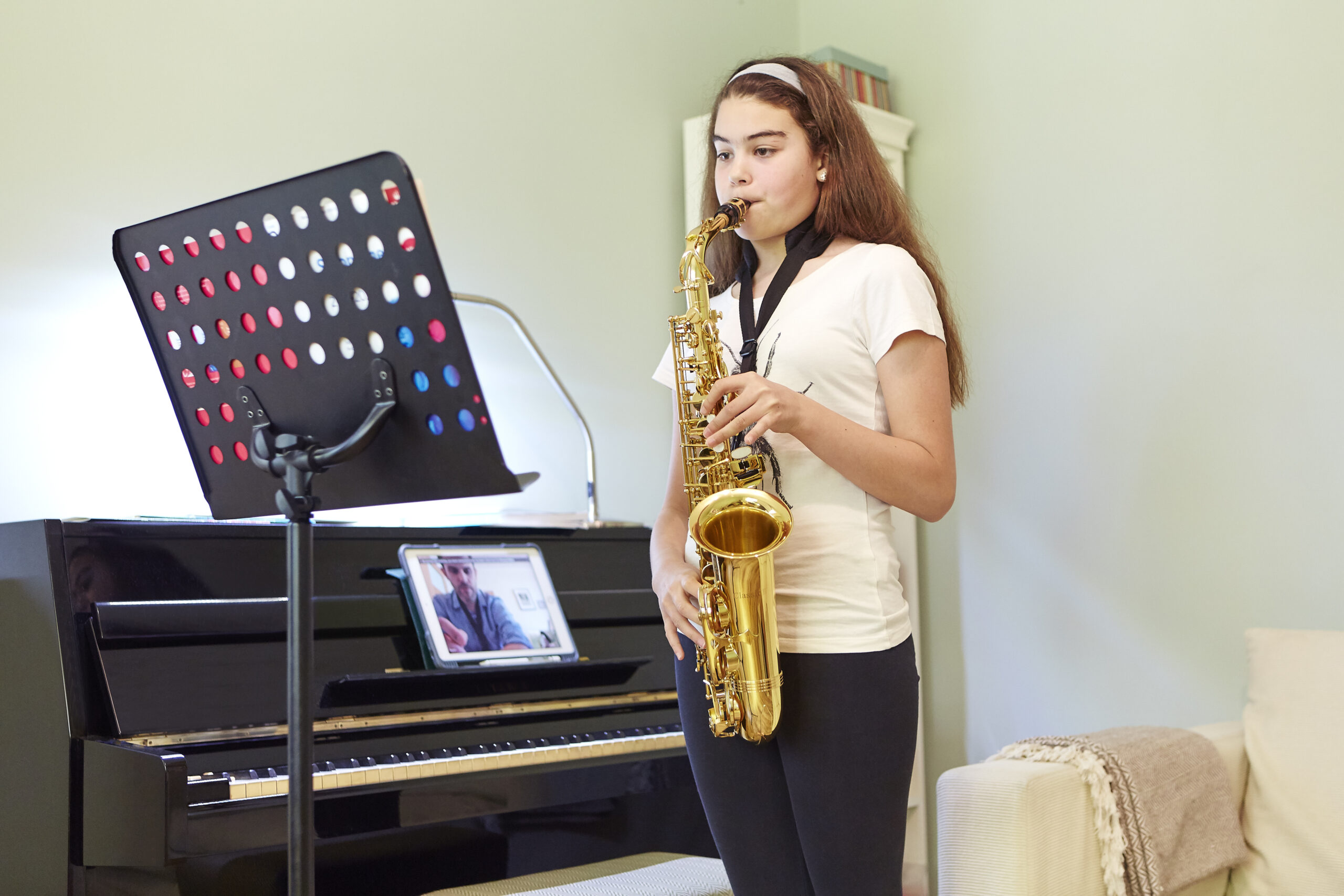April 09, 2015
Setting Your Music Beginners Up For Success in the Virtual Classroom


When it comes to the pandemic’s impact on music education, there’s good news and bad news. The good news is that modern technology is giving educators the power to connect with students remotely during a time when they need music the most. Remote learning on such a large scale would’ve been much harder to pull off a decade earlier and downright impossible before that. The bad news? Introducing beginning students to music is a challenging feat even under the best of circumstances, and the online learning format of a virtual classroom can make it even tougher.
But don’t despair. We’ve got helpful tips to set your beginning music students up for success. Whether you head a large band program or teach a modest music elective class for elementary school students, these tips will help beginner music students thrive online.
Encourage kids to master the tech side of virtual learning before classes and not during them
Your students don’t need to be tech wizs to make online learning work, but they do need to understand it enough to see, hear, and interact with you. Encourage your kids to get familiar with the video conferencing platform you’re using before class and not during it. If clear sound and video is important for instrument or vocal-specific lessons, tell your kids not to rely on the stock equipment on their devices. Speakers, instrument microphones, cameras, and stands can add a professional feel to your classes that will help your students learn and connect.
Be as clear as possible while introducing new concepts
Learning an instrument for the first time can be a massive challenge in its own right, but imagine learning it in front of a computer screen instead of in person. Keep this in mind when you bring your lessons for beginner music students to the virtual classroom. Break down every action as much as possible and make sure that your kids can see and hear what you’re doing. Repeat these actions as many times as you need to, and try being clearer than you think you need to be to ensure the information translates.
Depending on the age of your class and the difficulty of what you’re teaching, the remote learning format might not be conducive for sharing lots of important information quickly. This means that introducing and reinforcing concepts might need to happen at a slower pace online than they do in person. Teaching music online can be complicated for music educators and their students, so remember to be as patient as possible while teaching new concepts.
Make sure your students understand what you’re showing them by checking in frequently
Whether you’re teaching a beginner ensemble of five kids or a band program of a hundred, finding ways to check in with your students individually is essential for making sure your class is on the same page. Depending on the size of your class, age of your students, and the way your classes are set up, speaking with every student individually won’t always be possible during sessions. Give your kids an opportunity to communicate when they’re falling behind, whether it’s by making your educator email available to students and parents, or by scheduling ten-minute check-in sessions every couple of weeks. For beginner students, mastering foundational concepts is vital for their future success, so make sure they understand what they’re being taught at this vulnerable stage.
Celebrate wins big and small
Encouragement is even more important in online teaching in the virtual classroom than it is during conventional classes. This is because of the unavoidably cold nature of learning music physically alone in front of a screen. Go out of your way to recognize and celebrate your students when you see them producing clear tones for the first time or reading eighth notes correctly. This will pull your student into the educational experience and show them that they’re on the right track.
REGISTER AS AN OFFICIAL EDUCATOR WITH MUSIC & ARTS
Music & Arts knows how important and difficult your job as a music educator can be. That’s why we offer special discounts, free shipping directly to schools, and helpful resources and guidance to music teachers who register on our site. Register as an official Music & Arts educator today!
Check out more Educator Resources!







